Michigan is famous for its stunning Great Lakes shorelines, charming small towns, and endless outdoor adventures. But hidden among the natural beauty are some unusual rules that catch visitors completely off guard. Every year, thousands of tourists get slapped with fines simply because they didn’t know about these quirky local laws. Understanding these regulations can save you money and help protect the places that make Michigan so special.
1. Welcome to Michigan: Watch Your Step or Pay the Price
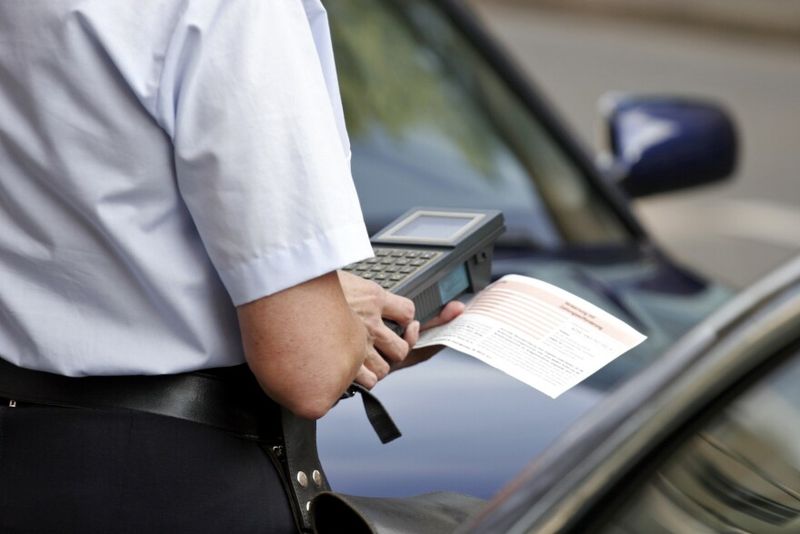
Michigan may be known for its lakes and charming small towns, but it’s also home to some truly quirky rules that catch tourists off guard. From outdated ordinances to hyper-local laws, visitors often find themselves breaking rules they didn’t even know existed. Think twice before walking your dog on certain beaches or buying alcohol on a Sunday morning – yes, really.
These infractions might seem harmless, but they can lead to real fines and awkward encounters with local authorities. The strangest part? Many of these laws are still enforced, especially during peak tourist season. Travelers expecting laid-back lake vibes are often surprised by how strict things can get. Even seasoned road trippers admit Michigan’s rulebook is one of the most unpredictable.
It’s not all doom and tickets, though – knowing what to watch for can save you hassle and cash. So before you pack your bags, brush up on the oddities that make Michigan both lovable and a little law-heavy.
2. Beach Bonfire Restrictions Along Lake Michigan
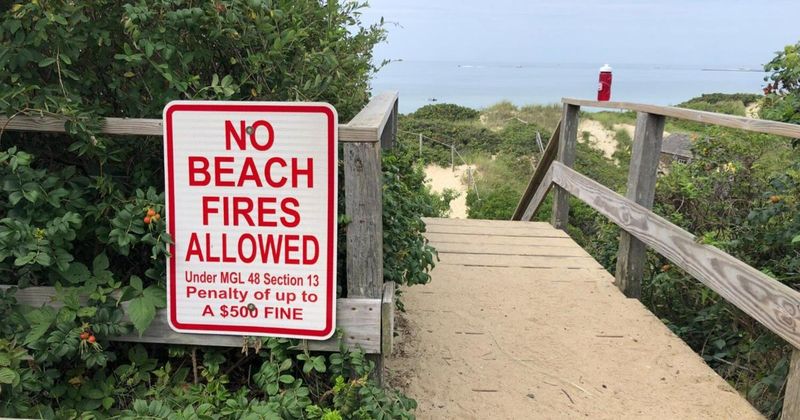
Picture this: You’re watching the sun dip below Lake Michigan, and someone suggests building a cozy bonfire. Sounds perfect, right? Wrong. Many Michigan beaches strictly prohibit open fires, and rangers patrol popular spots regularly.
Sleeping Bear Dunes National Lakeshore and numerous state parks enforce complete fire bans to protect fragile dune ecosystems. The fines start around $100 but can climb much higher for repeat offenders. Visitors often miss the posted signs or assume beach fires are allowed everywhere.
These rules exist because beach fires damage native vegetation and leave behind dangerous debris. Local officials report issuing hundreds of citations each summer to unsuspecting tourists. Park rangers emphasize that designated campground fire rings are the only legal option.
Before planning any beach gathering, check with local authorities about specific regulations. Bring a portable grill to designated picnic areas instead. Respecting these boundaries helps preserve Michigan’s beautiful coastline for future generations while keeping your vacation budget intact.
3. Metal Detector Use in State Parks
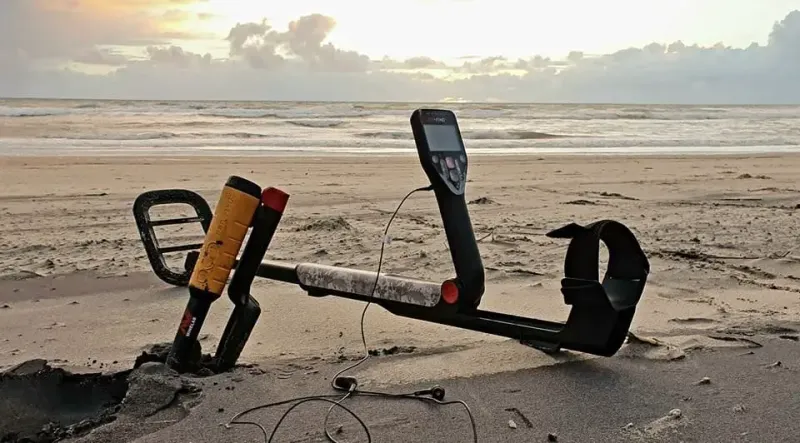
Treasure hunting might seem like harmless fun, but Michigan takes a firm stance against unauthorized metal detecting. State parks prohibit the use of metal detectors without special permits, and this surprises many visitors who bring their equipment along.
The law protects archaeological sites and historical artifacts from disturbance. Rangers at popular destinations like Holland State Park and Ludington State Park regularly stop people using detectors. Fines typically range from $50 to $500 depending on the violation severity.
Tourists frequently argue they didn’t see posted warnings or thought the rule only applied to certain areas. However, the restriction covers all state-managed lands unless you obtain written permission beforehand. Michigan Department of Natural Resources officials explain that removing artifacts destroys valuable historical context.
If you’re passionate about metal detecting, research designated areas where it’s permitted with proper authorization. Contact park offices well before your visit to understand application procedures. Some local beaches outside state jurisdiction may allow detecting, so do your homework and keep Michigan’s history protected.
4. Pet Access Violations at Pictured Rocks
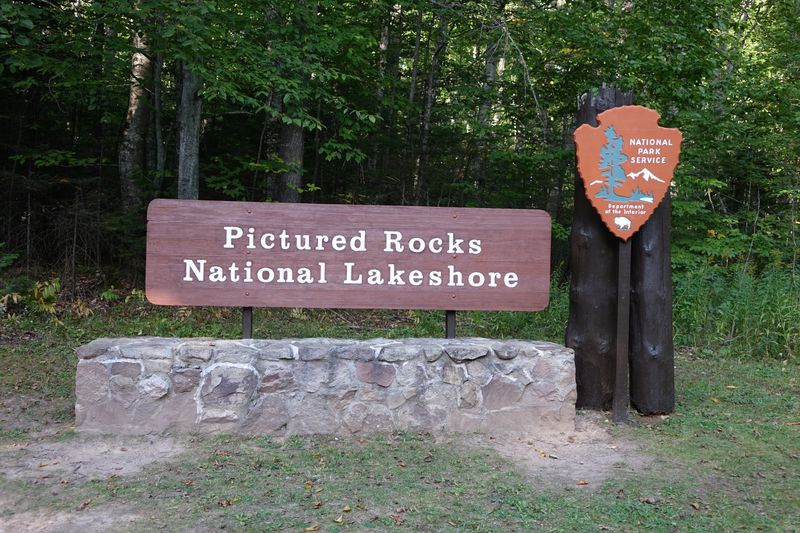
Your furry friend might be your best travel companion, but Pictured Rocks National Lakeshore has strict boundaries about where pets can go. Dogs are banned from most trails, overlooks, and backcountry areas, catching countless dog owners by surprise.
This Upper Peninsula gem allows pets only on specific roads, campgrounds, and beaches. The restrictions protect wildlife habitats and prevent conflicts with other visitors. Park rangers issue citations starting at $125 for violations, and they actively patrol popular trails.
Many tourists assume national parks welcome leashed pets everywhere or simply overlook the detailed regulations posted at trailheads. Local residents support these rules, noting that sensitive ecosystems need protection from domestic animal disturbances. Park officials report that pet violations rank among their most frequent citations.
Always review pet policies before visiting any Michigan park or natural area. Consider boarding your pet or choosing pet-friendly destinations if hiking restricted trails is your priority. Following these guidelines ensures wildlife stays safe and your vacation remains ticket-free.
5. Mackinac Island Vehicle Restrictions

Mackinac Island operates under one of America’s most unusual transportation laws: motor vehicles have been banned since 1898. Tourists arriving with e-bikes, electric scooters, or motorized wheelchairs often face confusion and potential fines if their devices violate regulations.
The island permits only traditional bicycles, horse-drawn carriages, and emergency vehicles. Even electric-assist bikes face restrictions depending on their motor specifications. Officers enforce these rules strictly because motorized traffic would destroy the island’s historic character and peaceful atmosphere.
Visitors frequently rent e-bikes on the mainland without realizing they’re prohibited on Mackinac. Local ferry operators and island officials have increased signage, but violations still occur regularly. Fines can reach $500, and offenders must immediately remove prohibited vehicles.
Before visiting Mackinac Island, verify that all your transportation equipment complies with current regulations. Rent traditional bikes on the island itself to avoid any problems. The no-motor rule preserves what makes this destination truly special, so embrace the slower pace and enjoy a genuine step back in time.
6. State Park Parking Pass Requirements
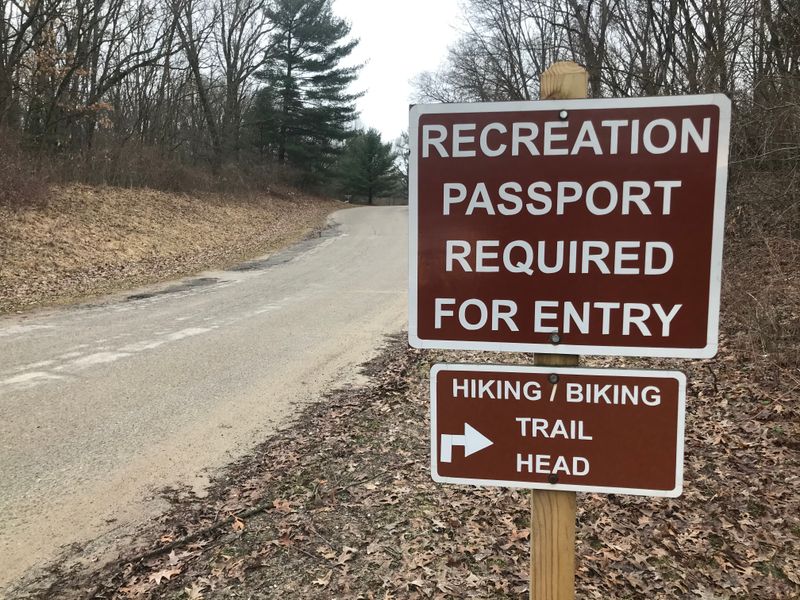
Did you know that simply parking at a Michigan state park requires a Recreation Passport? This annual pass system catches out-of-state visitors completely off guard, resulting in $10 parking tickets stacked on windshields throughout peak season.
Michigan residents can purchase the $12 Recreation Passport when renewing vehicle registration, but tourists must buy day passes or annual non-resident passes at park entrances. Many visitors assume parking is free or included with camping fees, leading to frequent citations.
Park officials explain that Recreation Passport revenue funds critical maintenance and improvements across Michigan’s 103 state parks. Rangers patrol parking areas multiple times daily, and the ticketing system is automated in many locations. Local residents appreciate that the modest fee keeps facilities well-maintained and accessible.
Always stop at park entrance stations to purchase your pass before parking anywhere within state park boundaries. Display it prominently on your windshield to avoid unnecessary fines. This small investment supports Michigan’s incredible outdoor spaces while keeping your vacation stress-free and budget-friendly.
7. Collecting Petoskey Stones From Protected Areas

Petoskey stones are Michigan’s beloved state stone, and hunting for these fossilized coral treasures is a favorite tourist activity. However, collecting them from certain protected beaches and parks can result in hefty fines that shock unsuspecting rockhounds.
While many beaches allow reasonable personal collecting, state parks and nature preserves often prohibit removing any natural materials, including stones. Wilderness State Park and several Leelanau County beaches have strict no-collection policies. Fines start around $100 and increase for larger quantities removed.
Tourists frequently misunderstand which areas permit collecting or assume small amounts are always acceptable. Local rock shop owners and longtime residents emphasize checking regulations before pocketing any finds. Park rangers report that stone collection violations spike during summer months when beaches are busiest.
Research specific beach regulations before your Petoskey stone adventure. Plenty of unrestricted beaches offer excellent hunting opportunities without legal concerns. When in doubt, ask local authorities or visitor centers about collection policies. Responsible rockhounding preserves natural beauty while letting you legally treasure hunt.
8. Drone Flying Restrictions Over Tourist Areas

Capturing aerial footage seems like the perfect way to remember your Michigan vacation, but drone regulations are stricter than most tourists realize. National parks, many state parks, and populated tourist areas prohibit recreational drone use entirely, with fines reaching $500 or more.
Sleeping Bear Dunes, Pictured Rocks, and Isle Royale completely ban drones to protect wildlife and visitor experiences. Even areas that seem remote may fall under restricted airspace near airports or military installations. Rangers and law enforcement actively monitor for unauthorized drone activity.
Visitors often launch drones without checking local regulations, assuming outdoor spaces automatically permit flying. However, noise disturbances, privacy concerns, and wildlife disruption have prompted increasingly strict enforcement. Michigan officials stress that ignorance of drone laws doesn’t excuse violations.
Always research federal, state, and local drone regulations before traveling with your equipment. Apps like B4UFLY help identify restricted zones and required permissions. Consider enjoying Michigan’s beauty through traditional photography instead. Following drone rules protects sensitive areas and keeps everyone’s vacation peaceful and penalty-free.
9. Unexpected Fishing Licenses
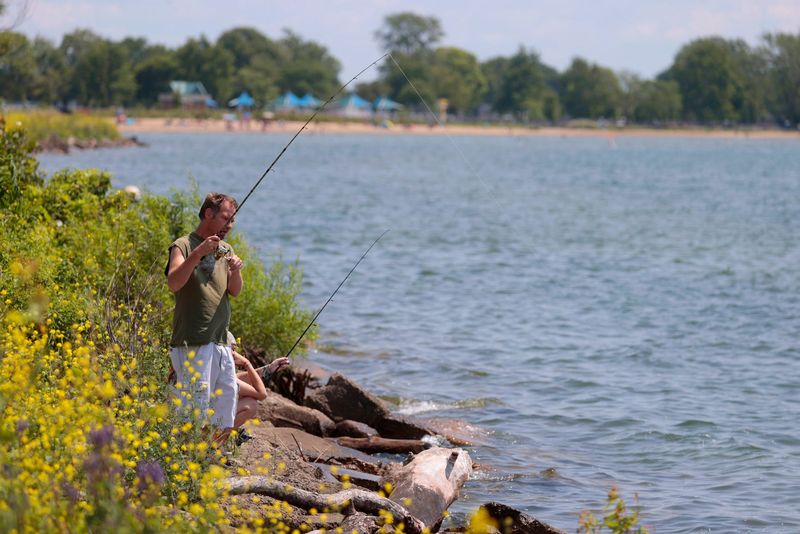
Catching a fish might seem like a simple pleasure, but in Michigan, it’s a regulated affair. Tourists often misjudge the need for a fishing license, thinking they can enjoy a spontaneous day at the lake. Even children require a license, which surprises many visitors. This oversight frequently leads to fines, turning a tranquil outing into a regulatory tangle.
To avoid penalties, ensure you purchase the appropriate fishing license before casting your line. Remember, Michigan values its natural resources, and these rules help preserve the aquatic ecosystems. Always check the specific requirements before your trip. Children under 17 can fish without a license, but they must follow all fishing rules and regulations. Adults assisting minors must also have a license if they’re actively helping with fishing activities.
Licenses are available online or at authorized retailers, and they’re valid from March 1 through March 31 of the following year. Taking a few minutes to get the right permit can save you from unexpected fines and help protect Michigan’s waters for future generations.
Dear Reader: This page may contain affiliate links which may earn a commission if you click through and make a purchase. Our independent journalism is not influenced by any advertiser or commercial initiative unless it is clearly marked as sponsored content. As travel products change, please be sure to reconfirm all details and stay up to date with current events to ensure a safe and successful trip.